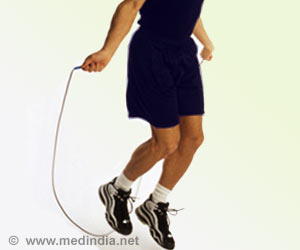Women are better than men at recognizing living things and men are better than women at recognizing vehicles, says a new study.

"Our motivation was to assess the role that expertise plays in object recognition with a new test that includes many different categories, so we weren't looking for this result," said Professor of Psychology Isabel Gauthier.
She directs the lab where post-doctoral fellow Rankin McGugin conducted the study.
"This isn't the first time that sex differences have been found in perceptual tasks. For example, previous studies have shown that men have an advantage in mental rotation tasks. In fact, a recent study looking only at car recognition found that men were better than women but attributed this to the male advantage in mental rotation. Our finding that women are better than men at recognizing objects in other categories suggests that this explanation is incorrect," she said.
Discovery of the sex effect in object recognition also casts doubt on several studies that claim an individual's ability to recognize faces is largely independent of his or her ability to recognize objects.
"Face recognition abilities are exciting to study because they have been found to have a clear genetic basis," said Gauthier, "and many studies conclude that abilities in face recognition are not predicted by abilities in object recognition. But this is usually based on comparing faces to only one object category for men and women."
Advertisement
The researchers modeled their new test after the well-established Cambridge Face Memory Task, which effectively measures a person's ability to recognize faces. After familiarizing themselves with a number of images, participants are shown three images at a time - one from the study group and two that they haven't seen before - and then are asked to pick out the image that they had studied.
Advertisement
To do this, the Vanderbilt researchers reasoned that performance on any category of interest needed to be compared to performance on many other categories, to ensure that the self-proclaimed bird expert is not only better with birds than most people, but also better with birds than with most other categories. So they designed the new test with eight categories of visually similar objects: leaves, owls, butterflies, wading birds, mushrooms, cars, planes and motorcycles.
To evaluate the new test, they administered it to 227 subjects - 75 male and 82 female - with a mean age of 23. When the results of the entire group were analyzed, the researchers found that increasing the number of categories revealed a large sex difference: Women proved significantly better at recognizing living things while men were better at recognizing vehicles.
In addition, the researchers administered a face recognition test to about half of the participants, which allowed them to determine the correlation between vehicle recognition and face recognition in men and the correlation between recognition of living things and faces in women.
The results were published online last month in the Vision Research journal.
Source-ANI









